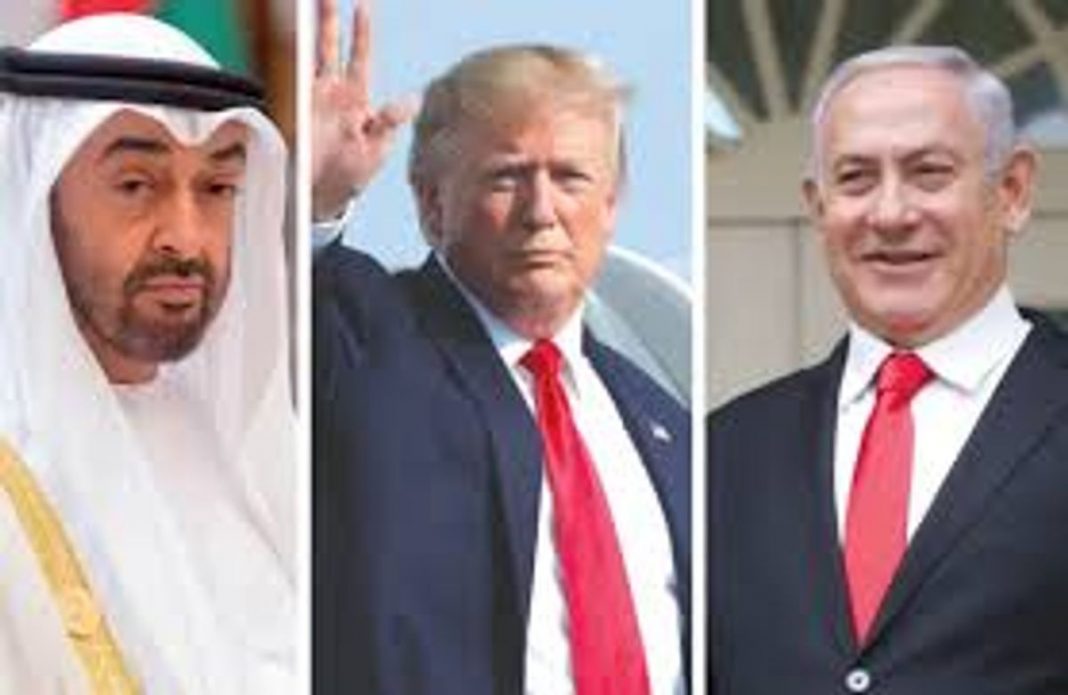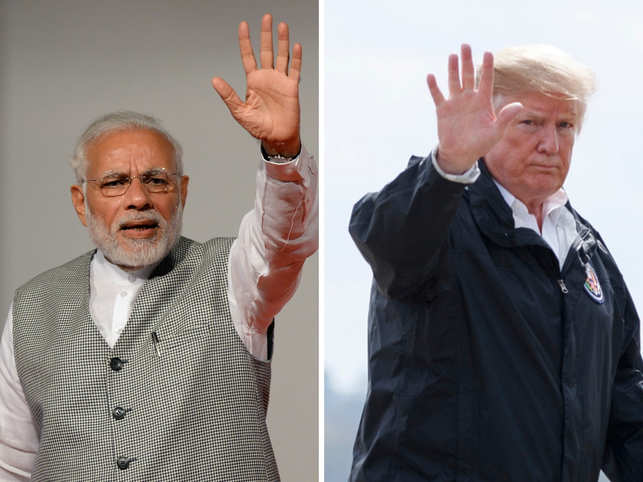The UAE-Israel deal to normalize their ties brokered by USA appeals to different stakeholders in a number of ways. The deal followed the opinion of the UAE’s ambassador to Washington Yusuf al Uthaiba published in Hebrew language Israeli daily two months before the deal was brokered calling the Israel’s annexation of the occupied Palestinian territory to be halted.
However, it indicated the possible normalisation of the bilateral ties between the two states which had already been observed in their covert cooperation in areas like security and intelligence. The deal would normalize the ties between UAE and Israel and will put a temporary full stop on Israel’s annexation of its occupied Palestinian territory. The deal was not rebuked by the majority in the Arab world. Only Turkey came up openly against the deal. Similarly, Iran and Palestinian did not render their nod to the deal. However, a bulk of Muslim states including Pakistan sent a confused response.
UAE-Israel deal: Varied implications for stakeholders
The UAE- Israel deal has multifarious implications for different stakeholders. Israel has been endowed with the desired recognition for its illegal status in the Muslim world especially in the Arab region. This normalisation may be followed by other Arab states. The ties-normalisation initiative may prove cooperative in the de-escalation of growing tensions between Israel and Iran. Internally, the deal may protect the Israel’s Prime Minister Netanyahu from the possible trial in corruption cases. It will secure a massive support for the Netanyahu’s administration in the Jewish community.
Moreover, it will cover the failure of the Netanyahu’s administration in handling the COVID-19. Similarly, the deal will curtail the Jordan turning into a Palestine-like state with annexation of the Jordan valley, the tussle between the hard-line annexationists and liberal anti-annexationists in USA. Joe Biden will be relieved of the annexation drama if he wins.
Similarly, the deal appeals to UAE in a plethora of spheres. UAE will get benefit from the normalisation of the ties in the ways of technology, tourism and economy among others. UAE is said to have thrown its intention of being the diplomatic and political master of the Arab world with the growing down play in KSA’s role in the Gulf Council of Cooperation and the Muslim world. UAE is also opined to have penned down the deal to halt the increasing influence of Turkey in the Muslim world and its infiltration in the Arab region.
UAE sees the emerging Turkish reality difficult to be halted by virtue of its Sunni nature and the growing economic entity. The deal seems to be less concerned with the Israel matter than the prevention of the growing Turkish power. Moreover, an opinion is put forward about the deal having little to do with the Iran’s factor. Iran is thought of being taken into confidence about the brokered deal in the foreign minister-level meeting between Iran and UAE concluded four days before the said deal.
Iran rebukes UAE-Israel Abraham accord
UAE wants to promote cooperation between Iran and Israel thereby reducing their tensions and curtailing the growing influence of Turkey. However, it must be made clear that Iran has sent a strong response to the normalisation initiative while rejecting it. It might be due to the UAE’s intention to have a strong defensive and technological front against Iran. In addition, UAE is conscious of the upcoming Presidential election in USA which, if Biden wins, would be inimical to UAE’s anti-Iran and Turkey approach.
Likewise, the normalisation initiative will edge Trump in his campaign for the upcoming presidential election. The Jewish community will possibly come out to back Donald Trump in his run for the presidential chair. The deal brokered by US is also an indication of the US’ decades long policy vis-a-vis Palestinian conflict. The upcoming November will decide the future of the US-Iran tussle which would turn back to the 2015 P5+1 deal in case Biden wins. The reelection of Trump is essential to the future of the Israel and Arab interactions.
Pakistan may revisit its decades long approach regarding its ties with Israel. Pakistan should visit its posture vis-a-vis the isolation of Israel. It should ponder over the fact whether it got the desired outcomes while hardening its ties with Israel. Pakistan should also consider whether Israel stopped its annexation of the occupied territory.
Moreover, it should also take into consideration whether the Arabs on whose will Pakistan has stayed off recognizing Israel have remained off in their mutual ties with Israel. If not, then Pakistan should visit its policy whereby it may achieve what it desires. Moreover, most of the Gulf Council of Cooperation countries have bilateral agreements with India thereby getting them silent on the key policy issue of Pakistan- Kashmir. Similarly, although KSA has refused opening up its ties with Israel openly, yet it provides the air space to Israel to cross over it to UAE in addition to the trade and cooperation of KSA with Israel.
UAE attempts to increase share in Arab politics
China is an emerging economic power by virtue of its key role in regional and global political set up. It has various trade agreements with many Arab states and is also one of the largest oil exporters of the Middle East. It has also initiated its multi billion dollar project Belt and Road Initiative. Despite all this, it has cordial ties with Israel and Arab world. It is trying to expend its soft power via investment and developmental projects in the region and across it. It will intact its status quo vis-a-vis its approach to avoid any undesired foreign involvement. Similarly, Russia is resurging militarily and is a key player in the Middle Eastern region. It is supporting Assad’s regime in Syria against the rebels backed by the GCC bloc and USA. The deal may reflect upon its regional and global stakes especially in the Middle East.
Read more: Gulf security: troubled by unreliability of traditional partners
The deal is auguring major developments in the regional and global politics. This normalisation initiative of bilateral ties may be followed by other Arab states. It will possibly help UAE in its intention to be the major stakeholder in Arab politics. It may also fulfill desire of containing the growing influence of Turkey if it succeeds in launching joint efforts with Iran and Israel. Similarly, Israel may get more Arab countries on its back in addition to merits the deal will render the Netanyahu’s administration in its national politics. For US, the deal has two sides: helping out Trump in his presidential election and secondly the US’s Iran policy would depend on the forthcoming presidential elections which will affect the said deal-like initiatives in future if Biden wins.
Abdul Samad Khan
The writer is a freelancer and can be reached at abdulsamadkhanbannu22@gmail.com. He is an MA degree holder from NUML Islamabad.














